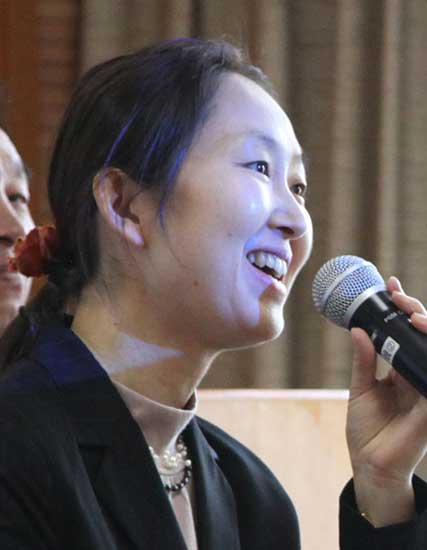 |
|
Japanese expert Izumi Miyazaki speaks at the launch of the Japanese edition of People’s Literature in Beijing.[Photo provided to China Daily] |
Izumi Miyazaki, a Japanese expert with Tsinghua University, is drawn to well-translated contemporary Chinese writing.
But she is also touched by accounts of stressful lives depicted in books. An example being the struggle for better schooling for children.
"It's the same, whether in China or in Japan - the feelings are shared," Miyazaki says in fluent Mandarin at the recent launch of a Japanese edition of People's Literature magazine in Beijing. She is an avid reader of the magazine.
From the Japanese edition of the magazine, which will be published annually under the name Tomoshibi, she is now reading about a China that is different from how the country has largely been projected in Japanese media.
People's Literature has multilingual editions in many countries, among which, the English version is called Pathlight.
"Media coverage is superficial, but stories and poems offer chances for deep communication," she says.
Miyazaki, who majored in Chinese in college, chose to learn the language because of Romance of the Three Kingdoms, a Chinese classic novel, she tells China Daily in an email.
Specializing in rural studies, Miyazaki is a fan of children's author Yang Hongying because she writes about nature.
Working for some 20 years on cultural exchanges between the two countries, Miyazaki says the younger Japanese may feel distant from China, but her teachers and their peers used to promote ties wholeheartedly.
"Now they're almost in their 60s," she says.
Miyazaki says that, over the years, while China's increasing economic strength has influenced its image in Japan, there is still room for balanced exchanges as young Chinese are interested in Japanese pop culture, while the reverse isn't always visible.
|
|
|
|
|
|
|
|
